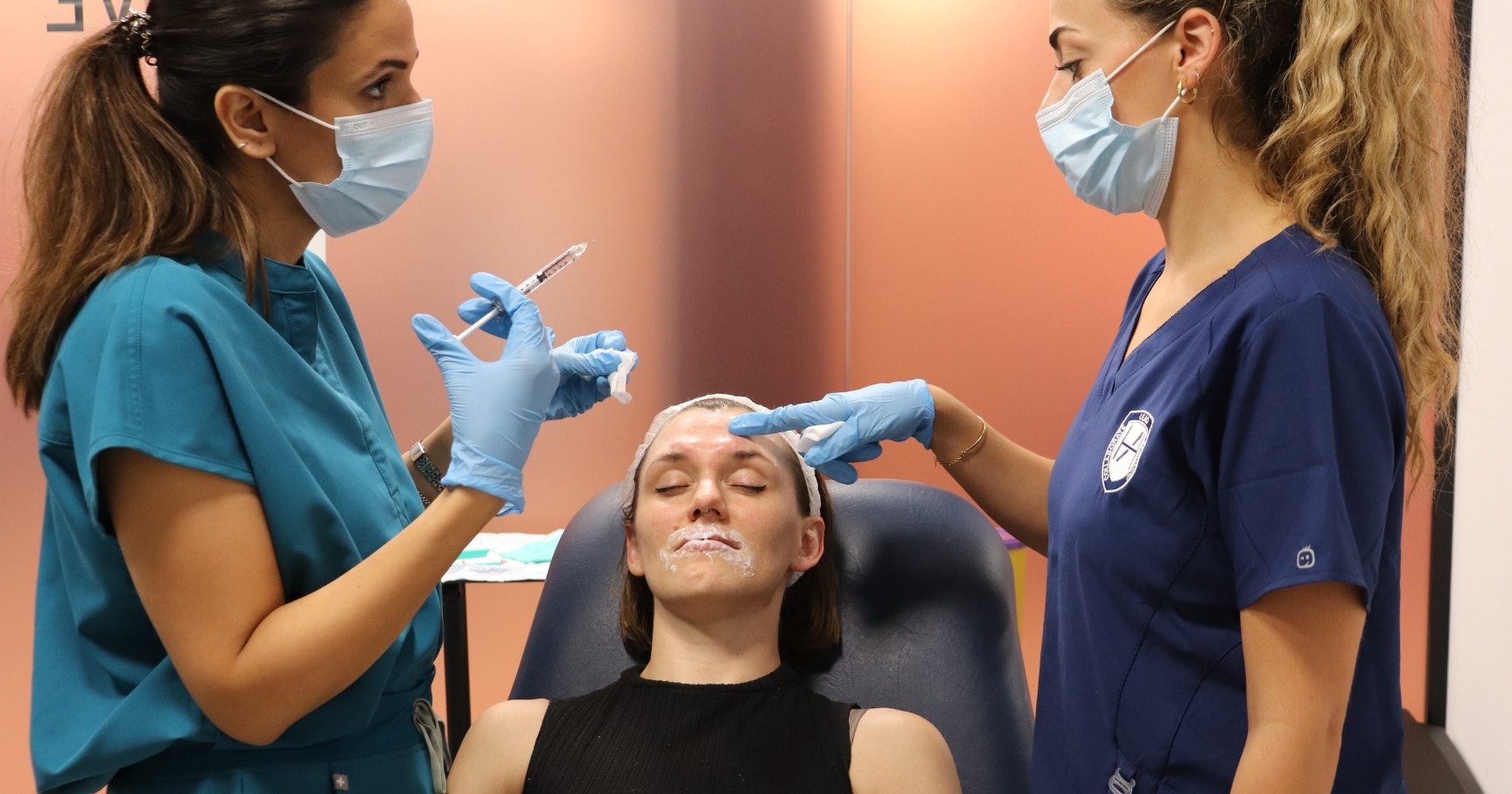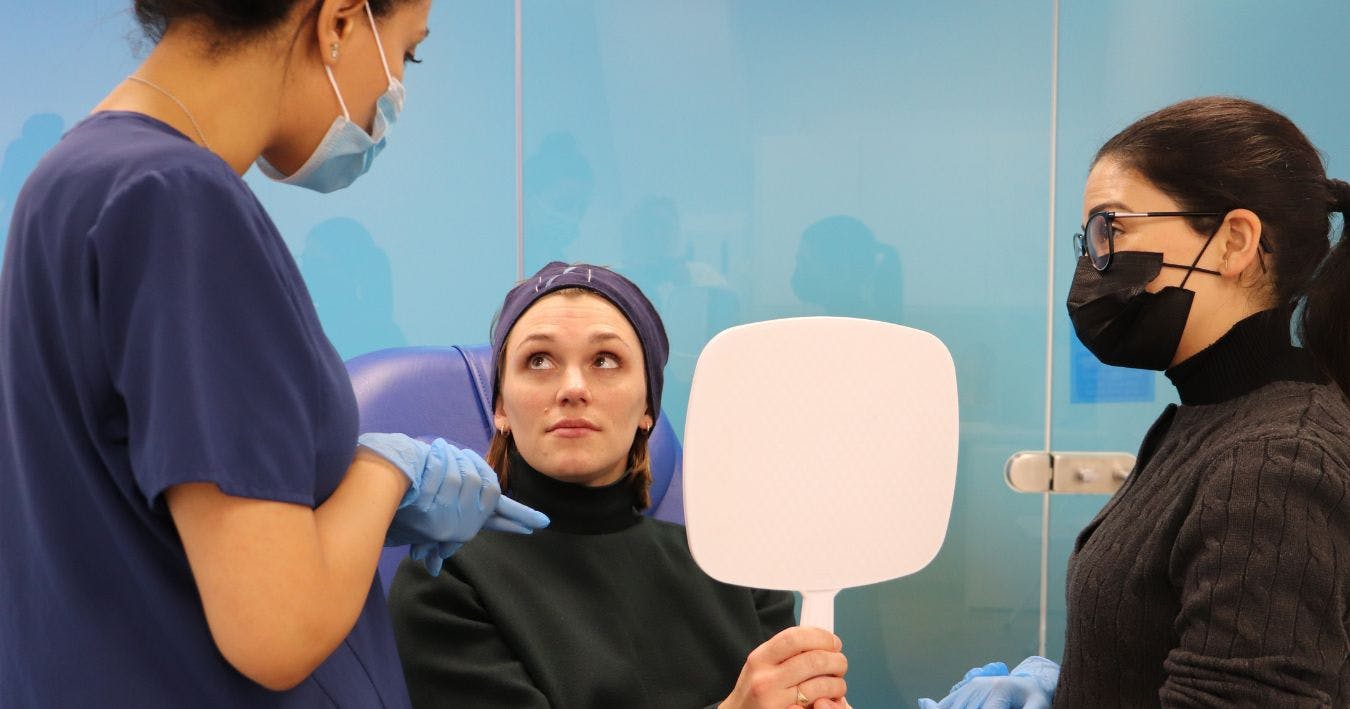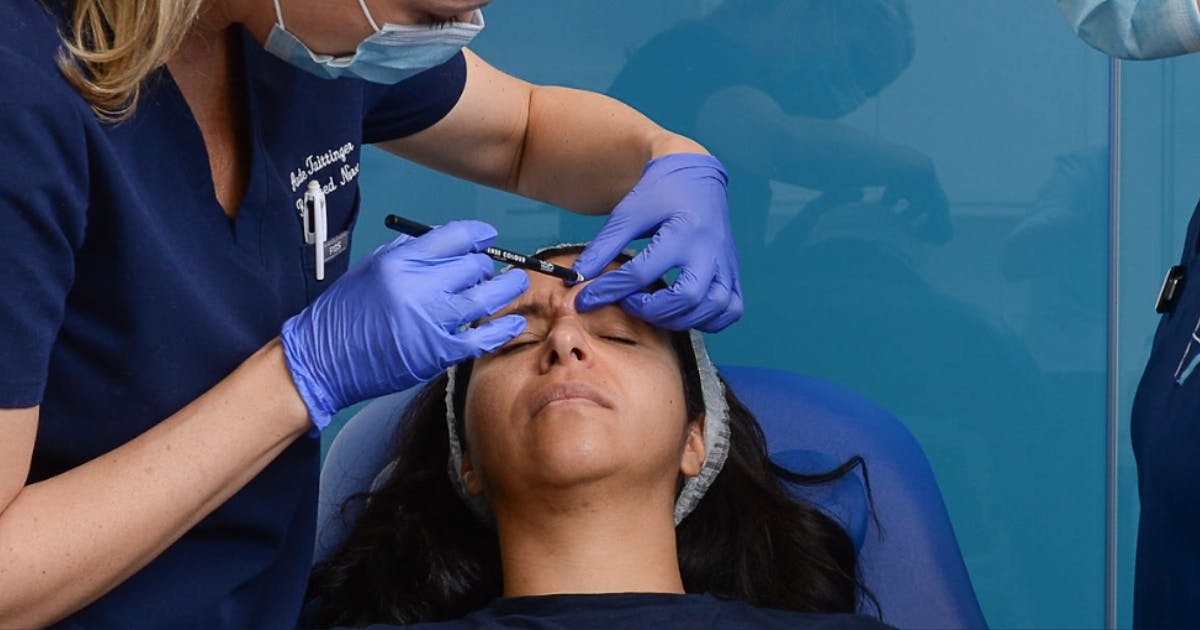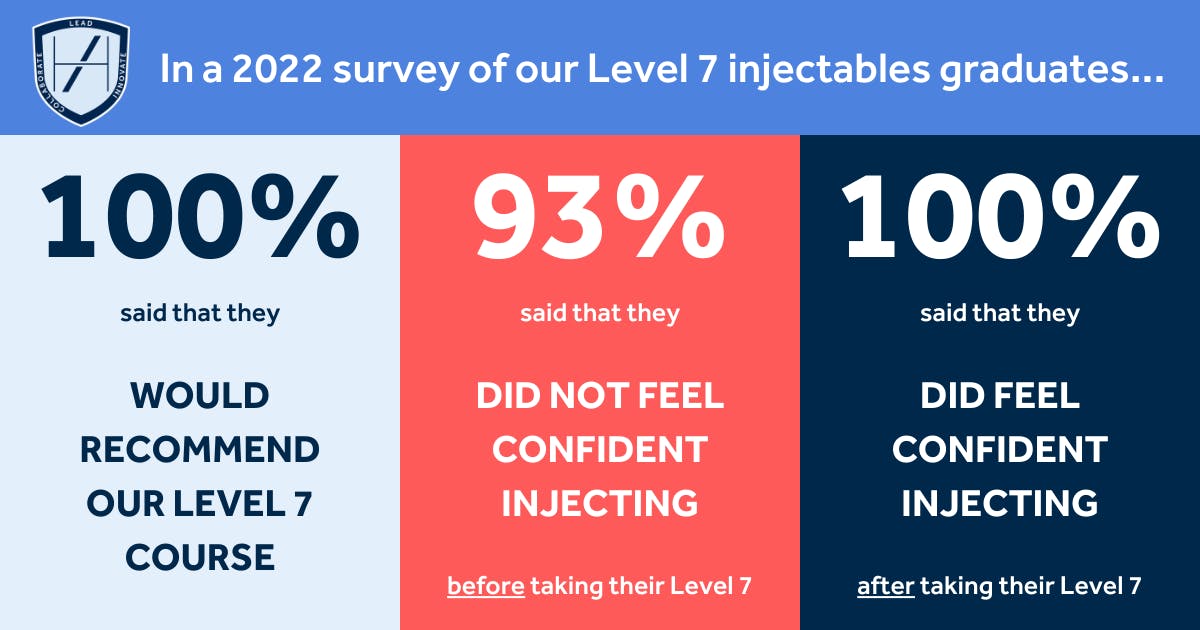Do I Need a Level 7 in Injectables to Get Started in Aesthetics?

The Level 7 in Injectables qualification is the gold standard in postgraduate aesthetic medicine training. But do you need a Level 7 to get started in aesthetics? No. Let us explain…

What you need to get started in medical aesthetics
It’s important to distinguish between what you need to start practising from a legal point of view and what you need to feel confident as an aesthetic practitioner.
The legal requirements
Legally, you should have:
- Appropriate insurance that covers the scope of your aesthetic practice
- A premises that meets the requirements of your local council. Generally, these relate to health and safety
- As a healthcare professional, there’s the additional step of having to abide by your professional regulatory board’s Code of Conduct.
You can legally start to practice aesthetic medicine once you’ve completed your Foundation-level training in injectables. Successfully achieving certification from, for example, our Foundation Training in Botox & Dermal Fillers course, will allow you to obtain the insurance you need to practice.
You can also access this entry-level training plus a host of additional benefits to get you started, via The Aesthetics Accelerator course.
The practical and psychological elements
As you can see, even for medics, the legal requirements to get started in aesthetic medicine are minimal. You can be considered fit to start treating patients after as little as a one-day botox and filler course.
Whilst this is a great way to find out if medical aesthetics might be a good fit for you, it’s not enough to consider yourself a competent and confident aesthetic practitioner. These short injectables courses are designed as a springboard from which you can launch your educational journey.
There will always be new techniques, unique presentations and concerns, and new treatments to learn about. Aesthetic medicine is a young and rapidly evolving specialism, which is one of the things that makes it so enticing!
In addition to ensuring you commit to ongoing learning to continually improve as an aesthetic practitioner, you need to make sure you’re truly ready.
You obviously need to have the practical issues handled. This includes having your insurance, premises and licences in place, plus all your stock and tools. You may also wish to join complications groups for support in preparing your emergency protocols.
If you aren’t a prescriber, you’ll need to find someone to work with you on this, too. This is in addition to the business aspects such as setting up a bank account, working out how to take payments and which methods you’ll accept.
With all this going on, don’t forget that the psychological factors are just as crucial. These can involve considering factors such as being confident in your:
- Communication and consultation skills
- Treatment planning - including which treatments you offer as a novice injector
- Product selection and injection techniques
- Ability to prevent, identify and manage any complications.

Are you ready to start treating patients without supervision?
Honestly evaluate whether you’re ready to start treating patients without supervision. This self-assessment is vital if you’re planning on starting your own business. However, it’s also an important consideration if you’re applying for aesthetic practitioner jobs within clinics.
If you feel like you’re lacking in certain areas, you can always scale back your initial treatment menu to what you are confident in offering. Then, undertake additional aesthetics training in the areas you’re not so assured of.
Consider offering a minimal treatment menu at first
When you begin to practice, it’s absolutely fine to have a minimal, pared-back treatment menu. The most important thing is to ensure you’re treating within your scope of competency. Many injectors make a good living from only offering the basics but doing them well. Don’t feel like you have to offer everything all at once!
It is entirely normal not to feel ready to treat patients one-on-one after completing an entry-level botox or filler course. Even if you’ve completed hours of eLearning and are already familiar with facial anatomy, you’ll find some elements are completely new to you.
For example, many healthcare professionals are experienced in giving injections. However, did you know that even the way you hold a syringe is different in facial aesthetics? This takes time to get comfortable with and certainly isn’t something you should rush.
93% of Level 7 graduates did not feel confident injecting before taking their Diploma
In a 2022 survey of our Level 7 graduates, 93% admitted they did not feel confident injecting before taking their Diploma course. Conversely, 100% of these graduates did feel confident after obtaining their postgraduate level qualification.
This is why we offer all our Foundation Training and Aesthetics Accelerator graduates the opportunity to upgrade to our full Level 7 Diploma in Botox & Dermal Fillers course. By upgrading in this way, the cost of this initial training is removed from the total cost of the Level 7 course.

Aesthetics training course and qualification needs
As you may be aware, regulation of the non-surgical sector is extremely lax in the UK. This has resulted in no current legal requirements for aesthetics training.
Right now, there is no mandatory training requirement or minimum qualification standard that individuals should attain to practice aesthetic medicine in the UK.
That said, there are some rules in place - and they mostly apply to medical professionals.
Healthcare professionals can be held to account
At present, many non-medics are able to treat patients with little-to-no substantial injectables training. There are numerous factors behind this, including the poor quality of unregulated aesthetics courses.
Meanwhile, medics are held to a higher standard.
Doctors, dentists, nurses and pharmacists, for example, are accountable to their boards - the General Medical Council, General Dental Council, Nursing & Midwifery Council and General Pharmaceutical Council, respectively.
When you, as a healthcare professional, register with your regulator, you sign up to a Code of Conduct. This means that should you breach these rules, your medical licence may be revoked as well as your membership.

How to decide which aesthetics course is right for you when first starting out
There are several ways to determine which aesthetics course is right for you and various resources are available to help you understand the pros and cons of different pathways.
One general insight we can provide you with now is which courses healthcare professionals tend to choose based on their feelings towards aesthetic medicine…
A short, introductory aesthetics course is likely to be best for you if you:
- Aren’t sure if aesthetic medicine is right for you
- Just want to learn more about offering injectable treatments
- Want to get started quickly and will commit to developing your practice after this
- Don’t have much time available for training but want to make a start.
In these situations we would recommend the following pathways:
- Foundation Training in Botox & Dermal Fillers
- The Aesthetics Accelerator.
A more in-depth injectables course is likely the best option, if you:
- Want to pursue a career in aesthetic medicine
- Are interested in developing a full understanding of what’s involved in becoming a safe, ethical and effective aesthetic practitioner
- Want to gain significant hands-on injecting experience with one-to-one mentoring to expedite your comprehension
- Are seeking an Ofqual-regulated injectables qualification to confidently demonstrate your skill level and rigorous education to patients.
In these situations, a Level 7 in injectables is the best pathway for you. The choice is simply whether you opt for the more holistic training course or not:
- Level 7 Diploma in Botox & Dermal Fillers
- Combined Level 7 - this comprises our Level 7 Diploma course and our Cosmetic Dermatology Course.
Get free, personalised advice on the best training fit for you
A call with our Course Advisors will always allow you to receive the best possible personalised advice. They’ll listen to your goals, concerns and requirements then talk you through the most suitable courses. What they won’t do is just try to sell you a Level 7.
At Harley Academy, as a JCCP-approved aesthetics training provider with an outstanding reputation, we believe the quality of all our courses speaks for itself.
We work hard to ensure we deliver the highest quality of evidence-based injectables training with a focus on safety and real-world applications. It’s how we’ve built and continue to maintain our reputation. This isn’t something we’re going to risk with an unnecessary hard-sell approach!
Attend our free Getting Started in Aesthetics event
Additionally, you can attend our free Getting Started in Aesthetics event, which answers many of the questions healthcare professionals like you have on this topic.
In return for an hour of your time - usually online for your convenience, but occasionally in-person, too - you’ll learn…
- What the aesthetic medicine landscape looks like in the UK
- Why people often say ‘aesthetics is over-saturated’ and where the opportunities lie
- How to deal with negativity you may experience from NHS colleagues
- What aesthetics regulation means for anyone looking to enter the field now
- Which training pathways there are to help you start your aesthetic medicine career, including understanding the difference between accredited and certified courses
- The mindset you need to help you succeed in this industry.
Furthermore, you’ll have the opportunity to ask questions and get the answers you need to inform your career decisions!
In summary, do you need a Level 7 in injectables to get started in aesthetics? No. Is it the right course for you? That depends on your goals. Would we recommend it if you want to be a confident aesthetic practitioner with an Ofqual-regulated, accredited qualification? Absolutely.
All information correct at the time of publication
Download our full prospectus
Browse all our injectables, dermal fillers and cosmetic dermatology courses in one document
By submitting this form, you agree to receive marketing about our products, events, promotions and exclusive content. Consent is not a condition of purchase, and no purchase is necessary. Message frequency varies. View our Privacy Policy and Terms & Conditions
Attend our FREE open evening
If you're not sure which course is right for you, let us help
Join us online or in-person at our free open evening to learn more
Our Partners














STAY INFORMED
Sign up to receive industry news, careers advice, special offers and information on Harley Academy courses and services

